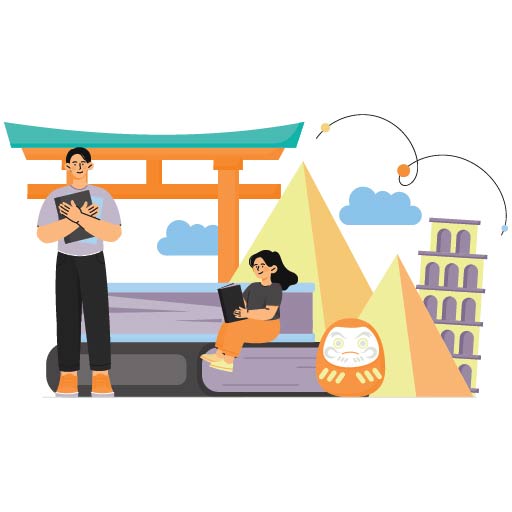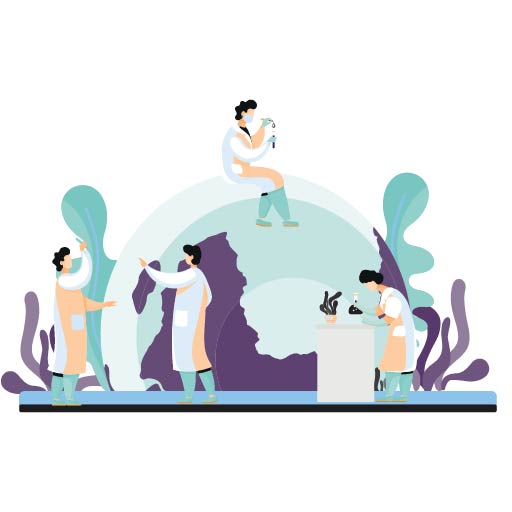International Christian University
About the International Christian University
International Christian University (ICU), located in Tokyo, Japan, embraces diversity and cultivates global citizens. Through transformative education, ICU nurtures a sense of community and understanding among students, fostering dialogue and empathy on a global scale while promoting academic excellence. ICU’s inclusive and interdisciplinary approach empowers graduates to tackle complex global issues, making a meaningful impact in an interconnected world.

A brief history
Established in 1949, International Christian University (ICU) stands as Japan’s inaugural liberal arts college. It emerged with the noble mission of pursuing truth, safeguarding academic freedom, and nurturing internationally inclined individuals committed to fostering enduring peace. The university’s origins trace back to a group of Japanese Christian educators who envisioned an institution grounded in Christian values. The Japan International Christian University Foundation (JICUF) was established in New York in 1948 to facilitate fundraising and advocate for world peace, particularly between Japan and the United States. With a forward-looking approach, ICU aspires to be a “University of Tomorrow,” uniting Japanese and international students in learning and living to address emerging global challenges.
General information
International Christian University (ICU) stands as a non-denominational private university situated in Mitaka, Tokyo, Japan. Established in 1949, it marked the pioneering venture of introducing liberal arts education to Japan. Rooted in Christian ideals, ICU is dedicated to nurturing globally oriented individuals who champion service to humanity, lasting peace, and a blend of freedom and reverence. Notably, the institution is distinct for its complete bilingual approach, mandating all students to engage in studies both in English and Japanese. ICU’s prominent standing ranks it 10th overall and foremost among private universities in Japan. With a diverse array of 31 undergraduate majors and a graduate school, the university continues its legacy of academic excellence.


Quick facts about Kyoto
- Established in 1953 through international cooperation after World War II.
- Home to 2,944 students from 53 diverse countries and regions.
- Unique liberal arts education offering 31 majors to foster creativity.
- Small faculty-student ratio of 1:17 for personalized learning.
- Robust curriculum with 830 courses annually across various fields.
Faculty with 37.1% international representation, ensuring diversity. - Over 60% of students opt for enriching overseas study experiences.
- Multilingualism emphasized via 2+1 language structure (Japanese, English + 1).
- Sprawling campus of 620,000㎡, equivalent to 13 Tokyo Domes.
- Vibrant campus life with 30% of students residing on-campus.
- Diverse extracurricular activities, including over 100 options.
- Student-led initiatives, including the iconic ICU Festival.
Download our Successful College Application Guide
Our Guide is written by counselors from Cambridge University for colleges like MIT and other Ivy League colleges.
To join our college counseling program, call at +918825012255

FAQs
Yes, high school students in Japan who have graduated or are expected to graduate from a non-IB Japanese high school can apply to ICU through the English Language Based Admissions. For their Educational Certification, they are required to submit SAT, ACT Plus Writing, or GCE A Level scores.
Absolutely, regardless of your Japanese language proficiency, you can apply to ICU in English. If admitted through the English Language Based Admissions, completion of Japanese Language Programs (JLP) is necessary for graduation. Adequate English proficiency is essential for pursuing academic studies at ICU in English.
Certainly, ICU is not focused on converting individuals to Christianity. While ICU’s mission is rooted in Christian ideals, its primary goal is establishing an academic tradition based on freedom and reverence.
No, the application deadline requires all documents to be uploaded to the Online Application System or received by ICU within the application period. Additionally, the application fee must be paid within this period.
No, if you’re an IB diploma candidate, SAT scores are not mandatory. You can submit IB predicted grades as your “Educational Certification.” Alternatively, SAT scores can be submitted in place of IB predicted grades.
Instruction at ICU is conducted in both Japanese and English. Around 30% of courses (excluding language learning) are taught in English, while the rest are in Japanese or a combination of both.
No, ICU follows a bilingual approach. Both Japanese and English are instructional languages. Students admitted through the English Language Based Admissions must take some Japanese-taught courses alongside English ones to graduate.
Yes, all students admitted through the English Language Based Admissions must take a placement test for Japanese Language Programs (JLP). This ensures appropriate course placement based on their Japanese proficiency levels.
Yes, ICU’s academic programs in the College of Liberal Arts and the Graduate School hold charters from Japan’s Ministry of Education, Culture, Sports, Science, and Technology (MEXT). Additionally, ICU is a member of the Japan University Accreditation Association (JUAA). Credits earned at ICU are widely recognized by major universities in Japan, the United States, and beyond, making them transferable within academic programs.
Popular Courses

Japanese Area Studies
Explore art history, communication, cultural studies, media, sociology, history, politics, and society.

Liberal Arts Seminar
Engage in small-class seminars covering humanities, social sciences, and natural sciences.

Peace Studies
Dive into peace, conflict resolution, human rights, and international relations.

Environmental Studies
Delve into environmental science, policy, and sustainability.
.jpg)
International Relations
Study international politics, diplomacy, and global issues.

Business Administration
Take courses in management, marketing, accounting, and finance.
Find the Japan university that best suits you!
Use Tychr Japan University Admissions Calculator to generate a list of recommended universities that are the best fit for you.
Eligibility Criteria
Tests and Average Scores (2018-2022):
- TOEFL iBT: 103
- SAT: 1,353
- ACT Plus Writing: 28.9
- IB Full Diploma: 36
- Completed 12 years of formal education in Japanese schools accredited by the Ministry of Education, Culture, Sports, Science, and Technology
- Completed 12 years or more of formal education outside of Japan
- Have International Baccalaureate Full Diploma, French Baccalauréat, Abitur, or GCE Advanced Level
- Graduated from an officially accredited international/foreign school in Japan
- Passed an examination demonstrating academic ability equivalent to 12 years of formal education (e.g., GED or Upper Secondary School Equivalency Examination), and is at least 18 years of age or older
Fee Structure
For Entrance in AY2023, the fee structure is as follows:
Matriculation Fee: Regular Students: ¥300,000;
One-Year Regular Students and Kenkyusei: ¥150,000
Tuition and Facilities Fees: College of Liberal Arts: Tuition: ¥1,101,000 per year; Facilities Fee: ¥354,000 per year; Sum: ¥1,455,000 per year

Admission Deadlines
Recruitment Period:
- Early January (April enrollment)
- Early September (April enrollment)
- Early July (April enrollment)
- April: Early October (September enrollment)
- September: Early January and late February (April/September enrollment)
Notable alumni







